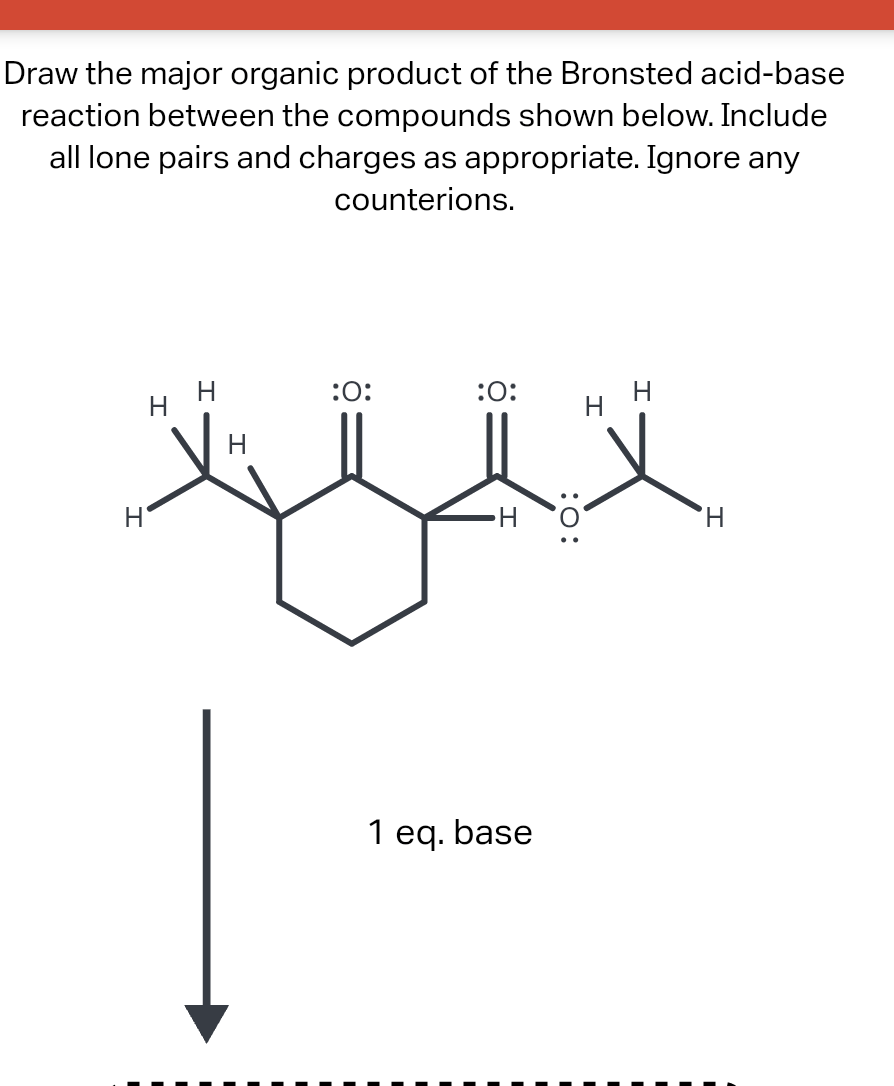Draw The Major Organic Product Of The Bronsted Acid Base Reaction
Draw The Major Organic Product Of The Bronsted Acid Base Reaction - The product is water (the conjugate acid of hydroxide) and chloride ion (the. Include all lone pairs and charges as appropriate. We call the product that remains after an acid donates a proton the conjugate base of the acid. Nh hci drawing using the. A proton is transferred from hcl, the acid, to hydroxide, the base. Web in this reaction, a proton is transferred from hcl (the acid, or proton donor) to hydroxide (the base, or proton acceptor). Web h+ +oh− h2o h + + oh − h 2 o. Include all lone pairs and charges as appropriate. In this reaction, h cl donates its. Naoh select to draw using the arrows provided in the image, predict the product of this reaction.
In this reaction, h cl donates its. Web nh 3 ( g) + h cl ( g) → n h 4 cl ( s) this reaction can also be represented using the lewis structures of the reactants and products, as seen below: A proton is transferred from hcl, the acid, to hydroxide, the base. Naoh select to draw using the arrows provided in the image, predict the product of this reaction. The resulting products are the ammonium ion and the hydroxide ion. Include all lone pairs and charges as appropriate. Web in this reaction, the water molecule is donating a proton to the ammonia molecule.
Include all lone pairs and charges as appropriate. Include all lone pairs and charges as appropriate. The product is water (the conjugate acid of hydroxide) and chloride ion (the. Web nh 3 ( g) + h cl ( g) → n h 4 cl ( s) this reaction can also be represented using the lewis structures of the reactants and products, as seen below: Web in this reaction, the water molecule is donating a proton to the ammonia molecule.
We call the product that remains after an acid donates a proton the conjugate base of the acid. In this reaction, h cl donates its. Include all lone pairs and charges as appropriate. Include all lone pairs and charges as appropriate. The product is water (the conjugate acid of hydroxide) and chloride ion (the. Web nh 3 ( g) + h cl ( g) → n h 4 cl ( s) this reaction can also be represented using the lewis structures of the reactants and products, as seen below:
Web when a bronsted acid (or simply acid) reacts with a bronsted base (or simply base) a proton is transferred from the acid to the base. Include all lone pairs and charges as appropriate. Web in this reaction, a proton is transferred from hcl (the acid, or proton donor) to hydroxide (the base, or proton acceptor). Include all lone pairs and charges as appropriste. Include all lone pairs and charges as appropriate.
A proton is transferred from hcl, the acid, to hydroxide, the base. As we learned in the previous chapter, curved arrows depict. This species is a base because it can. The product is water (the conjugate acid of hydroxide) and chloride ion (the.
Include All Lone Pairs And Charges As Appropriate.
A proton is transferred from hcl, the acid, to hydroxide, the base. The resulting products are the ammonium ion and the hydroxide ion. Web nh 3 ( g) + h cl ( g) → n h 4 cl ( s) this reaction can also be represented using the lewis structures of the reactants and products, as seen below: Web in this reaction, the water molecule is donating a proton to the ammonia molecule.
The Water Is Acting As A.
Naoh select to draw using the arrows provided in the image, predict the product of this reaction. In this reaction, h cl donates its. Web in this reaction, a proton is transferred from hcl (the acid, or proton donor) to hydroxide (the base, or proton acceptor). Nh hci drawing using the.
Include All Lone Pairs And Charges As Appropriste.
Include all lone pairs and charges as appropriate. This species is a base because it can. Include all lone pairs and charges as appropriate. We call the product that remains after an acid donates a proton the conjugate base of the acid.
As We Learned In The Previous Chapter, Curved Arrows Depict.
Include all lone pairs and charges as appropriate. Web when a bronsted acid (or simply acid) reacts with a bronsted base (or simply base) a proton is transferred from the acid to the base. Include all lone pairs and charges as appropriate. The product is water (the conjugate acid of hydroxide) and chloride ion (the.
